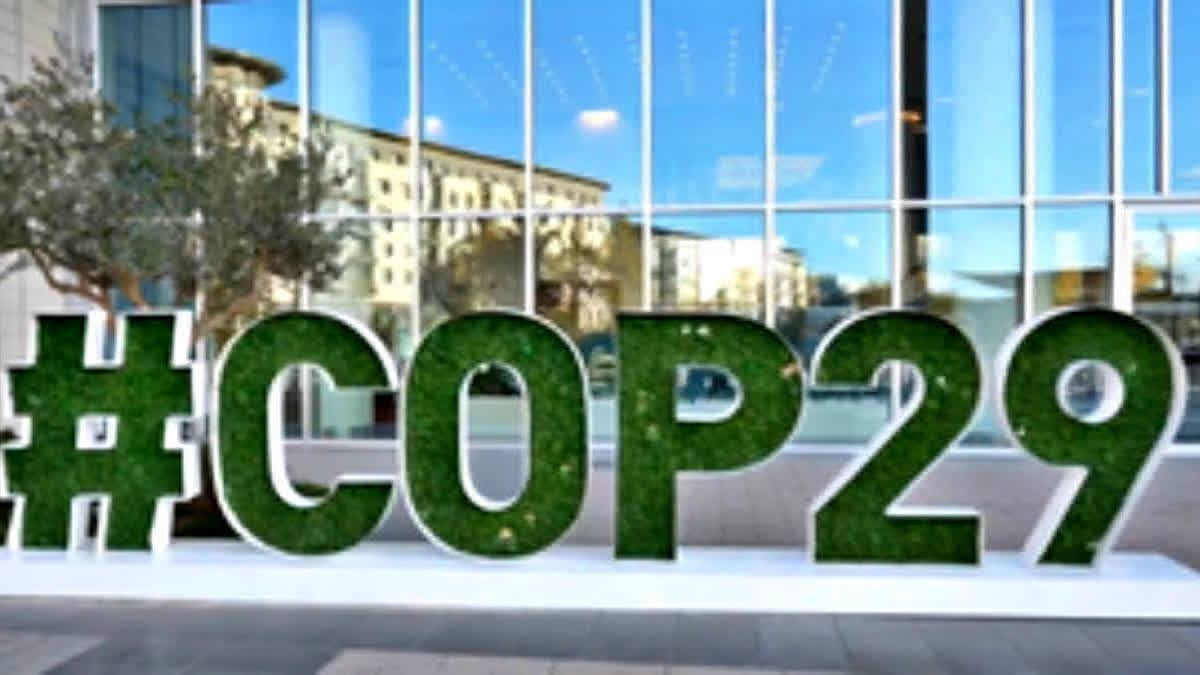Baku (Azerbaijan): India on Tuesday said the new climate finance goal to support climate action in the Global South must be rooted in the principle of climate justice and asked wealthy nations to take the lead in reducing emissions and ensure adequate carbon space for developing countries.
Delivering India's national statement at the UN climate conference in Baku, Union Minister of State for Environment Kirti Vardhan Singh also criticised the restrictive trade measures imposed by some developed nations, saying they hinder climate action in developing countries.
"What we decide here on NCQG (new climate finance goal) must be founded on the principle of climate justice. The decisions must be ambitious and unambiguous, taking into consideration the evolving needs and priorities of the developing countries, and their commitment to sustainable development and eradication of poverty," Singh said.
He said that free access to green technologies and adequate financial support are essential for increasing climate ambition in the Global South. "On the contrary, some of the developed countries have resorted to unilateral measures, making climate actions more difficult for the Global South.
"The emergent situation we are in, there is no option but to break all barriers to the flow of technology, finances and capacity to the Global South," he added. India has been resisting unilateral trade measures like the European Union's Carbon Border Adjustment Mechanism (CBAM) at multilateral forums, saying it unfairly shifts the costs of climate action to poorer nations.
The CBAM is the EU's proposed tax on energy-intensive products like iron, steel, cement, fertilizers, and aluminium imported from countries such as India and China. The bloc claims that this mechanism creates fair competition for domestic goods, which must meet stricter environmental standards, and help reduce emissions from imports.
The minister warned that the global carbon budget for limiting warming to 1.5 degrees Celsius is likely to be exhausted in this decade. He urged developed nations to lead by example by advancing their net-zero targets and ensuring "enough carbon space for developing countries like ours".
India said that the historical high-carbon emission pathways of the Global North have left very limited carbon space for the Global South. However, it said that fulfilling the fundamental needs of sustainable development and poverty eradication cannot be compromised.
Despite contributing minimally to global emissions, the Global South bears a disproportionate financial burden for both mitigation efforts and the loss and damage due to climate change, impacting its developmental capacity.



